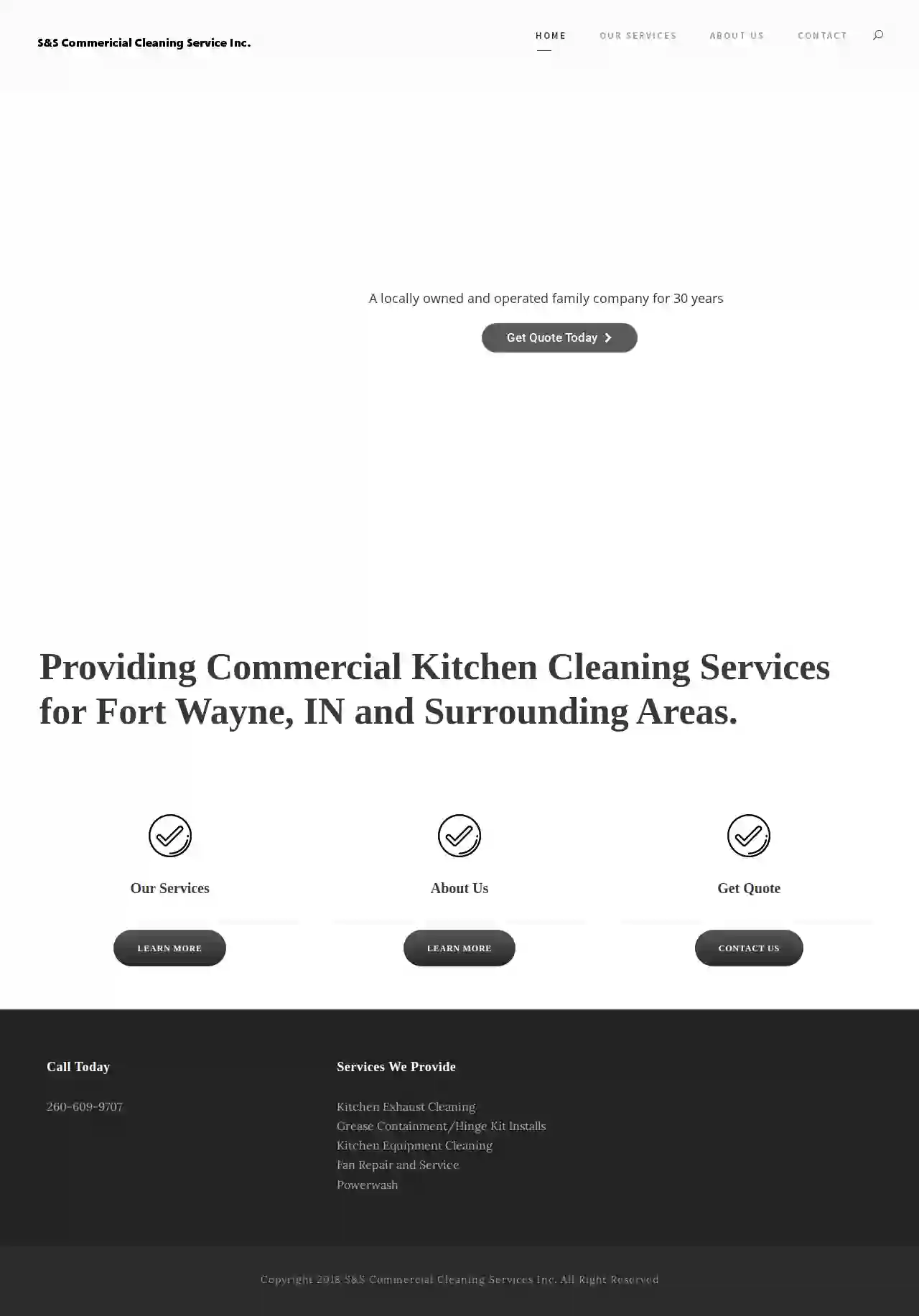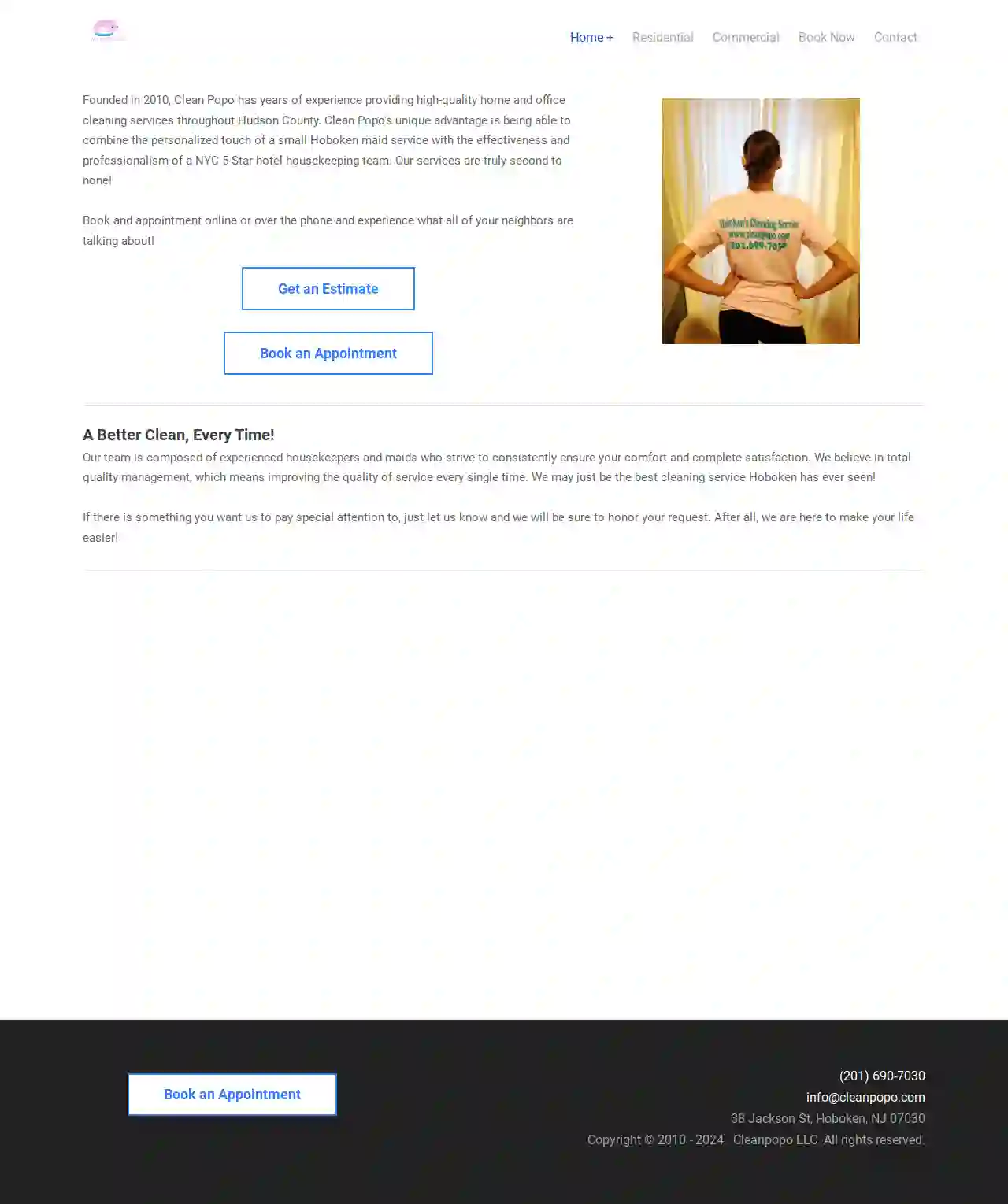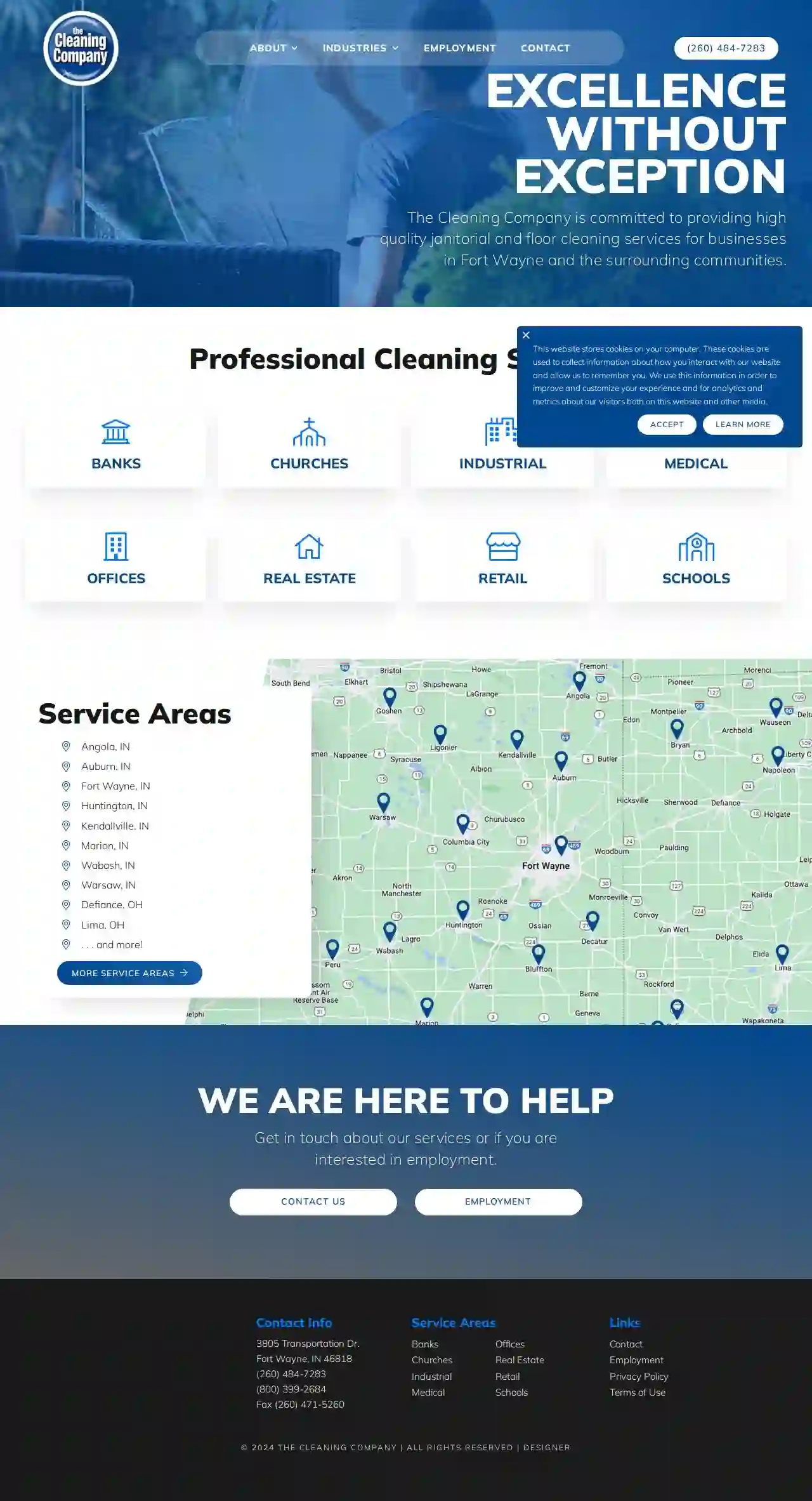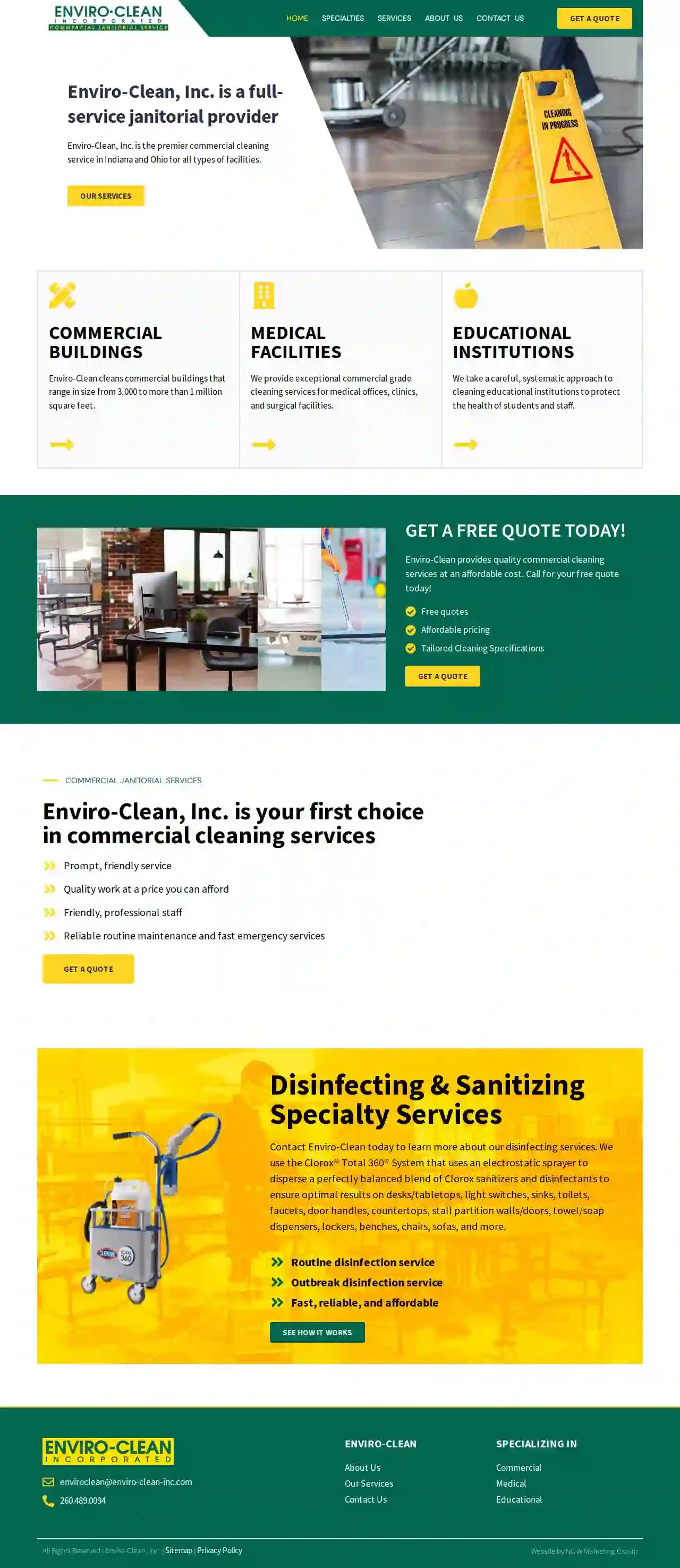Cleaning Services Englewood Cliffs
Find the best Home Cleaning in Englewood Cliffs
Receive multiple Local Cleaners quotes for your project today! Compare profiles, reviews, accreditations, portfolio, etc... and choose the best deal.

Office Pride Commercial Cleaning
52 reviewsWayne, USAt Office Pride, we deliver high-quality cleaning, sanitizing and disinfecting services to ensure your workplace is healthy and safe for everyone. Our expert cleaning crews follow industry best practices, wear top-notch personal protective gear, and adhere to all guidelines from OSHA, the CDC and the EPA. Safety and cleanliness are our top priorities! We work hard so you can work harder. That’s why our Healthy Clean SystemTM is customized to fit your business, facility—or mess. We’ve got you covered. As one of the most respected commercial cleaning companies in the nation, you can expect Office Pride to provide expert cleaning service and excellent customer service. When you have your business cleaned by an industry leader that deeply values business ethics and ensures total customer satisfaction, you have a commercial cleaning partner you can count on.
- Services
- Why Us?
- Gallery
Get Quote
S&S Commercial Cleaning Service Inc.
4.913 reviewsWayne, US- Services
- Why Us?
- Gallery
Get Quote
Cleaning Services
4.824 reviewsWayne, US- Services
- Why Us?
- Gallery
Get Quote
Kingdom Cleaning & Maintenance Services
4.620 reviewsJersey City, US- Services
- Why Us?
- Gallery
Get Quote
Clean Popo Cleaning
4.429 reviewsJersey City, US- Services
- Why Us?
- Gallery
Get Quote
The Cleaning Company
429 reviewsWayne, US- Services
- Why Us?
- Gallery
Get Quote
Home & Office Cleaning Services - HNO Cleaning Services
520 reviewsTrenton, US- Services
- Why Us?
- Gallery
Get Quote
Enviro-Clean Inc
2.824 reviewsWayne, US- Services
- Why Us?
- Gallery
Get Quote
CLEANNEX
56 reviewsPaterson, US- Services
- Why Us?
Get Quote- Xt
Xtreem Kleen JC
4.142 reviewsJersey City, US- Services
- Why Us?
Get Quote
Over 60,241+ Janitorial Companies onboarded
Our cleaning services operate in Englewood Cliffs & beyond!
CleaningMatch has curated and vetted the Best Janitorial Services in and around Englewood Cliffs. Find the most reliable business today.
Frequently Asked Questions About Cleaning Services
- Weekly: Suitable for busy households with children or pets, ensuring a consistently clean and healthy environment.
- Bi-weekly: A good option for smaller households or those who maintain a relatively clean home.
- Monthly: May be sufficient for individuals or couples who live a minimalist lifestyle.
- Quarterly or Annually: Can be suitable for deep cleaning or seasonal cleaning tasks.
- Regular Sweeping or Dust Mopping: Sweep or dust mop hardwood floors daily to remove dust, dirt, and debris.
- Vacuuming: Vacuum hardwood floors weekly using a vacuum cleaner with a hardwood floor attachment to avoid scratches.
- Damp Mopping: Damp mop hardwood floors with a hardwood floor cleaner as needed. Avoid excessive water, as it can damage the wood.
- Prevent Scratches: Place felt pads under furniture legs to prevent scratches. Avoid dragging heavy objects across the floor.
- Avoid Harsh Cleaners: Do not use harsh chemicals, abrasive cleaners, or furniture polish on hardwood floors.
- Professional Cleaning: Consider hiring a professional hardwood floor cleaning service for deep cleaning and refinishing as needed.
- Dishes: Load the dishwasher or wash dishes by hand.
- Sink: Clean the sink with a sponge or cloth and dish soap. Pay attention to the faucet and drain. You can also use a baking soda paste to remove stubborn stains.
- Countertops: Wipe down countertops with a disinfectant cleaner or all-purpose cleaner.
- Stovetop: Clean the stovetop with a degreaser or stovetop cleaner. Remove burner grates and wash them separately if needed.
- Oven: Clean the oven according to the manufacturer's instructions. You can use a self-cleaning function or a commercial oven cleaner.
- Microwave: Clean the microwave interior with a damp cloth or sponge. For stuck-on food, heat a bowl of water with lemon juice in the microwave for a few minutes to loosen debris.
- Refrigerator: Wipe down the refrigerator shelves and drawers with a damp cloth or sponge. Remove any expired food and clean spills promptly.
- Floors: Sweep or vacuum the floor, then mop with a floor cleaner suitable for your kitchen floor type.
- Trash: Empty the trash can and recycling bin.
- Cleaning: Removing dirt, dust, and debris from surfaces using soap or detergent and water. It improves the appearance and removes visible contaminants.
- Sanitizing: Reducing the number of bacteria on surfaces to a safe level. It uses chemical disinfectants or heat to kill or inactivate bacteria.
- Disinfecting: Killing or inactivating most disease-causing microorganisms on surfaces. It uses stronger chemical disinfectants than sanitizing and targets a wider range of pathogens.
How often should I have my house cleaned?
You can adjust the frequency based on your needs and budget. Some people opt for weekly cleaning for high-traffic areas like kitchens and bathrooms and bi-weekly cleaning for the rest of the house.
What are some tips for cleaning hardwood floors?
By following these tips, you can keep your hardwood floors looking beautiful for years to come.
What is the most efficient way to clean a kitchen?
Regularly cleaning your kitchen helps maintain a hygienic and organized space for cooking and dining.
What is the difference between cleaning, sanitizing, and disinfecting?
Cleaning is usually the first step, followed by sanitizing or disinfecting depending on the level of hygiene required.
How often should I have my house cleaned?
- Weekly: Suitable for busy households with children or pets, ensuring a consistently clean and healthy environment.
- Bi-weekly: A good option for smaller households or those who maintain a relatively clean home.
- Monthly: May be sufficient for individuals or couples who live a minimalist lifestyle.
- Quarterly or Annually: Can be suitable for deep cleaning or seasonal cleaning tasks.
You can adjust the frequency based on your needs and budget. Some people opt for weekly cleaning for high-traffic areas like kitchens and bathrooms and bi-weekly cleaning for the rest of the house.
What are some tips for cleaning hardwood floors?
- Regular Sweeping or Dust Mopping: Sweep or dust mop hardwood floors daily to remove dust, dirt, and debris.
- Vacuuming: Vacuum hardwood floors weekly using a vacuum cleaner with a hardwood floor attachment to avoid scratches.
- Damp Mopping: Damp mop hardwood floors with a hardwood floor cleaner as needed. Avoid excessive water, as it can damage the wood.
- Prevent Scratches: Place felt pads under furniture legs to prevent scratches. Avoid dragging heavy objects across the floor.
- Avoid Harsh Cleaners: Do not use harsh chemicals, abrasive cleaners, or furniture polish on hardwood floors.
- Professional Cleaning: Consider hiring a professional hardwood floor cleaning service for deep cleaning and refinishing as needed.
By following these tips, you can keep your hardwood floors looking beautiful for years to come.
What is the most efficient way to clean a kitchen?
- Dishes: Load the dishwasher or wash dishes by hand.
- Sink: Clean the sink with a sponge or cloth and dish soap. Pay attention to the faucet and drain. You can also use a baking soda paste to remove stubborn stains.
- Countertops: Wipe down countertops with a disinfectant cleaner or all-purpose cleaner.
- Stovetop: Clean the stovetop with a degreaser or stovetop cleaner. Remove burner grates and wash them separately if needed.
- Oven: Clean the oven according to the manufacturer's instructions. You can use a self-cleaning function or a commercial oven cleaner.
- Microwave: Clean the microwave interior with a damp cloth or sponge. For stuck-on food, heat a bowl of water with lemon juice in the microwave for a few minutes to loosen debris.
- Refrigerator: Wipe down the refrigerator shelves and drawers with a damp cloth or sponge. Remove any expired food and clean spills promptly.
- Floors: Sweep or vacuum the floor, then mop with a floor cleaner suitable for your kitchen floor type.
- Trash: Empty the trash can and recycling bin.
Regularly cleaning your kitchen helps maintain a hygienic and organized space for cooking and dining.
What is the difference between cleaning, sanitizing, and disinfecting?
- Cleaning: Removing dirt, dust, and debris from surfaces using soap or detergent and water. It improves the appearance and removes visible contaminants.
- Sanitizing: Reducing the number of bacteria on surfaces to a safe level. It uses chemical disinfectants or heat to kill or inactivate bacteria.
- Disinfecting: Killing or inactivating most disease-causing microorganisms on surfaces. It uses stronger chemical disinfectants than sanitizing and targets a wider range of pathogens.
Cleaning is usually the first step, followed by sanitizing or disinfecting depending on the level of hygiene required.